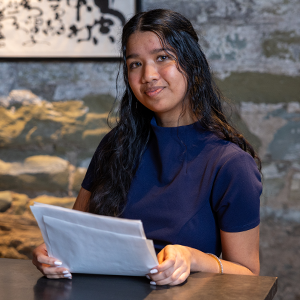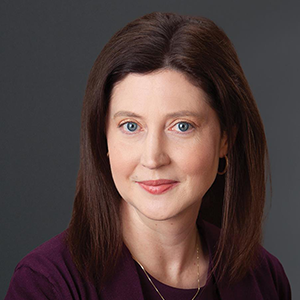lebo grad studies in Bosnia
When you look at Jessica Kuntz’s resume, it’s hard to believe she could ever slow down. But that’s exactly what she had to learn the first time she visited Croatia. She says the Croatian environment is relaxed compared to the fast paced American culture. “What I eventually learned is that things happen when they happen. It doesn’t do you much good to try and speed them along, you just have to accept the pace,” Kuntz says.
Still, she will always be driven, as her pursuits in her studies show. The 25-year-old strives to work either with the Department of State or Department of Commerce. Kuntz, of Salem Drive, holds a bachelor of science in international politics and international security studies from Georgetown University and is aspiring for a master’s in public and international affairs at the University of Pittsburgh. She has visited Croatia twice, once as a Fulbright fellow during college and the second interning for the United States embassy this past summer. After a brief break, she crossed oceans again to research and study in Bosnia-Herzegovina for the academic year. “I measure my success by impact and in that regards, there’s a lot of work to be done in the world,” Kuntz says.

While in Bosnia, Kuntz will live in the capital of Sarajevo, studying the Bosnian language and conducting economic research in the smaller areas of Visoko and Srebrenica. Specifically, Kuntz will research the relationship between government resources and economic and social conflict between ethnic groups.
The multiethnic state of Bosnia is a relatively poor country plagued with high levels of unemployment and challenging political environment. But these issues are not unique to just Bosnia. Kuntz believes the world’s economic system is flawed and she wants to research how to fix it. She hopes her education in Bosnia will help her understand the problems and help contribute to the solutions.

Kuntz received a $30,000 David L. Boren Fellowship in exchange for her promise to work for the United States government for at least a year after graduation. It won’t be the first time she’s worked with the government; she was an intern in the Defense Intelligence Agency and Department of Homeland Security. “National security requires you to always have your guard up,” Kuntz says. “Diplomacy allows more room for trust and cooperation between different cultures and countries.”
At Georgetown, Kuntz obtained theoretical background in international affairs and as a graduate student she decided to pursue practical, hands-on tools in public policy. “I consider this type of ‘face to face’ diplomacy, where you get out of the Embassy and into the community, to be especially needed in a world where public opinion matters,” Kuntz says.

During her visit in Croatia in 2010, Kuntz started to learn the specific dialect of everyday interactions between the citizens. She continued to study it through graduate school because of the joy of the challenge of learning the language. She became interested in Bosnian because of the similarities between the two languages, she says. Although the two are different dialects, there are only some variations in vocabulary. Kuntz says speaking the local language is a way of enhancing her understanding of a culture and opens the range of people with whom she can communicate. Plus, speaking other languages will better prepare her for representing the United States in other countries.
In her internship at the Public Affairs section of the United States Embassy Zagreb in Croatia, she was part of the public face for the embassy as she handled media, conferences, meetings and outreach. She wrote speeches, planned diplomatic receptions and scribed messages along with other duties, as she observed others to learn leadership styles and build relationships.
She has a thirst for knowledge relating to culture and equality, but where did the spark first begin? “Spark? More of a flame,” says her father, Jay. Both her parents and Kuntz herself credits advanced placement history teacher Peter Dinardo, a fellow Georgetown graduate with whom she still keeps in touch, with giving her a bigger vision and making her think globally during the challenging class.
Kuntz mirrors the generation’s morals of being overly stressed, imaginative and not settling for ordinary, Dinardo says. Her generation refuses do the bare minimum to be successful in today’s world and has to go far beyond what is expected, he says. Although he is not surprised by her accomplishments, he is still impressed. “Average is over,” Dinardo says.





